BQ provides comprehensive U.S. company data on both active and inactive businesses, focusing on research, due diligence, sales targeting, risk measurement, and economic insights. BQ’s database includes:
- Verified firmographics (name, EIN, IRS industry code)
- Quarterly financials (revenue, net income, EBITDA, total assets)
- Monthly employment and payroll data
- Corporate family tree structures
- Information on directors and officers
- Business locations, loans, and stock authorizations
BQ’s historical data spans from 2010 to the present. Data updates occur:
- Monthly for employment and payroll
- Quarterly for most other metrics, excluding benefits
- Annually for benefits and comprehensive company data
Yes, BQ provides point-in-time data, rebuilding its dataset monthly to capture any amended filings from previous periods. Each monthly release is preserved to maintain accurate historical records.
Data updates occur monthly to ensure accuracy and the latest information.
BQ uses Amazon S3 for secure data storage, with daily backups and additional native AWS backup support.
BQ data can be delivered as CSV files to an S3 bucket, and an API is also available for data access.
- Private companies are privately owned and can be structured as LLCs, S-Corps, or C-Corps.
- A legal entity is a registered business unit that may consist of one or multiple establishments.
- An establishment is a business location, like a store or office, where a legal entity conducts operations.
A company or legal entity is marked inactive if it is dissolved, liquidated, or canceled according to state records. Establishments are also inactive if all related legal entities are inactive.
No, BQ does not scrape or collect data from websites requiring affirmative user action to access data (e.g., CAPTCHA, login).
BQ does NOT have any PII including SSN, Passport Number, Driver’s license number etc.
Changes in the company count are due to the clustering of legal entities into corporate family structures as new filings are processed. This helps clarify whether a legal entity operates independently or within a family structure.
Financials are subject to updates as new filings come in and family structures are revised. This reflects changes in company structure and any amended historical data.
BQ’s active indicator reflects companies currently active, leading to survivorship bias. In historical views, companies inactive today may not be counted, even if they were once operational.
Financial data may change due to company amendments, often revising data for up to seven years. As BQ views a business as a collection of entities and locations, changes to these structures can impact financials.
Due to gaps in filings, some financial data may be incomplete. BQ can fill these gaps upon client request.
Employment adjustments typically occur at year-end, causing a discontinuity between December and January data. This “true-up” process is standard and reflects official filings.
BQ’s employee count includes U.S.-based W2 employees only. It excludes 1099 contractors and international workers.
BQ’s financial data is derived primarily from taxes and company filings. Larger companies often have more complex structures, leading to potential discrepancies in financial reporting.
Monthly employment data is subject to revision due to delays in state reporting. BQ uses imputation methods similar to the Census Bureau and updates numbers when states provide the latest data.
BrightQuery was founded in 2019, building on academic research that began in 2006. Its founder, Jose M. Plehn, Ph.D., was an economics professor conducting research with U.S. federal statistical agencies to monitor the state of the economy. This work eventually evolved into a commercial effort, culminating in BQ’s creation.
Jose M. Plehn received the 2015 Notable Contribution to the Accounting Literature Award from the American Accounting Association for his impactful research.
BQ tracks comprehensive U.S. economy data, including:
- 100 million legal entities
- 70 million businesses
- 300 million addresses
- 60 million business owners
- 150 million employees
BQ also provides firmographics, corporate family trees, financial data, credit scores, fraud detection, employment, payroll, executive details, stock filings, franchise ownership, and healthcare provider information, spanning from 2017 onward, with most data available back to 2010.
Detailed information is available at:
BQ has secured contracts through America’s Datahub Consortium (ADC) to:
- Develop a National Secure Data Service (NSDS) for querying federal statistical data.
- Build platforms for state and local government data queries, including unemployment, tax, DMV, and health records.
- Establish AI-ready standards for federal statistical data.
BQ’s collaboration with the U.S. Census Bureau and other agencies enhances statistical products by filling gaps in survey data.
While the Economic Census is conducted every five years, BQ collects similar data monthly. BQ’s data is more extensive, covering financials, ownership, contacts, and more, supplementing gaps in government records caused by incomplete or erroneous survey responses.
BQ collects data from over 100,000 government offices and agencies, including:
- Federal, state, and local departments
- IRS, Department of Labor, Small Business Administration, U.S. Postal Service, SEC, and Secretaries of State
Industry-specific regulators in transportation, health, finance, and more
Details are available here.
BQ does not access confidential tax returns or personal information such as Social Security numbers or dates of birth. Tax-related financial data is derived from public filings.
BQ collects supplementary data from:
- Corporate websites
- News articles and press releases
LinkedIn, Yelp, Google Maps, Better Business Bureau
These sources enhance company profiles by adding details such as LinkedIn URLs and address validations.
BQ has developed StatRank™ which:
- Assigns confidence scores to data (100 = best, 0 = worst) based on source reliability.
- Avoids collecting Personally Identifiable Information (PII) except for public role-based information.
- Preserves historical data and amendments to avoid bias in analyses.
BQ retains point-in-time historical data and amendments from public filings, ensuring a comprehensive and unbiased economic history.
Yes, BQ’s public record data can be utilized for purposes like credit assessment, sales, and marketing.




















